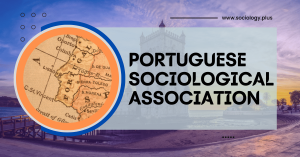History of the Portuguese Sociological Association
On 9 May 1985, the Portuguese Sociological Association, generally known as Associacao Portuguesa de Sociologia, which is abbreviated as APS, debuted. The inaugural APS membership comprised 30 people, and the first democratic elections for office holders were held in January 1986. APS is a non-profit organisation headquartered in Lisbon.
Mission of APS
APS enhances what people know about modern Portuguese society. By working with other social science organisations, APS hopes to strengthen sociology. The APS aims to inform and spread the work of sociology departments. It supports scientific events, reports and summaries of research results and lets people know about book launches.
APS believes that a multidisciplinary approach to research and teaching is essential for the country to reach high levels of scientific performance. APS wants to help people get a good education and keep Sociology graduates’ professional skills at a top standard. In association with the Sociology Departments, APS has helped improve and strengthen Portugal’s Sociology training paths. APS works to keep up with how societies are becoming more technocratic and help the Bologna Process.
Aim of the Portuguese Sociological Association
- APS prefers to work with other fields of study, scientific communities, and professional and social groups.
- The APS aims to spread sociological knowledge among institutions and make sure that the public is aware of what sociology has accomplished for them.
- APS encourages sociologists to do their occupations well and ensures that their code of ethics is followed in research, teaching, and learning.
- APS encourages research and keeps people in Portugal conversing about and debating scientific issues.
- APS helps Portuguese sociologists become part of the international sociology community.
- APS encourages sociologists to look at Portuguese society and social problems from a sociological point of view.
- APS works to help Sociology grow in Portugal and build a national sociological community.
Structure of APS association
The association includes the General Assembly, Executive Board, Supervisory Board, Advisory Board, and Ethics Committee.
Portuguese Sociological Association Journals/Publications
Sociology Online is an APS journal published online and is free to read.
APS Membership
APS provides many privileges for its members and offers special deals for the sociology student community of Portugal.
APISOT
The APS association works with APSIOT, founded in 1984 and is also known as the Portuguese Association for the Sociology of Industry, Organization, and Work. APSIOT puts on a lot of scientific meetings and debates with unionists and politicians about different social issues. Since 1989, APSIOT has been publishing “Organization and Work” regularly. The main goal of APISOT is for sociologists, social scientists, and members from other fields to converse and collaborate.
International collaborations of Portuguese Sociological Association
ISA and ESA Membership of APS
APS has been striving to make Portuguese Sociology more international by working with national and international institutions. In 1986, the APS became a member of the International Sociological Association. APS has helped people participate in ISA research committees, ISA publication committees, and ISA Sociology World Congresses. APS is also a member of the European Sociological Association, and its members regularly attend meetings of ESA’s national associations.
RESU Member
APS has relations with the Regional Network of Southern European Societies, also called RESU (RN27), which includes sociological associations from France, Italy, Portugal, and Spain.
Sociology Congresses of APS
The Congress is the most important national scientific event, having acquired the high patronage of the President of Portugal or the Assembly of the Republic as a show of public respect for the sociological work of Portuguese sociologists.
First Portuguese Congress of Sociology
- Theme: Sociology and Portuguese Society at the Turn of the Century
- Location: Lisbon
- Date: 27 to 29 January 1988
Second Portuguese Congress of Sociology
- Theme: Social Structures and Development
- Location: Lisbon
- Date: 5 to 7 February 1992
Third Portuguese Congress of Sociology
- Theme: Practices and Processes of Social Change
- Location: Lisbon
- Date: 7 to 9 February
Fourth Portuguese Congress of Sociology
- Theme: Portuguese society recent past/near future
- Location: Coimbra
- Date: 17 to 19 April 2000
Fifth Portuguese Congress of Sociology
- Theme: Contemporary Societies: Reflexivity and Action
- Location: Braga
- Date: 12 to 15 May 2004
Sixth Portuguese Congress of Sociology
- Theme: Social Worlds: Knowledge and Practices
- Location: Lisbon
- Date: 25 to 28 June 2008
Seventh Portuguese Congress of Sociology
- Theme: Society, Crises and Reconfigurations
- Location: Porto
- Date: 19 June to 22, 2012
Eighth Portuguese Congress of Sociology
- Theme: 40 years of democracy: progress, contradictions and prospects
- Location: Évora
- Date: 14 to 16 April 2014.
- The congress cycle changes from a 4-year congress to a 2-year congress.
Ninth Portuguese Congress of Sociology
- Theme: Portugal: territory of territories
- Location: Faro
- Date: 6 to 8 July 2016
Tenth Portuguese Congress of Sociology
- Theme: In the post-truth era? The public sphere, citizenship and democracy in contemporary Portugal
- Location: Covilha
- Date: 10-12 July 2018
Eleventh Portuguese Congress of Sociology
- Theme: Red-hot identities: differences, belongings and populisms in an effervescent world
- Location: Lisbon
- Date: 29 to 31 March 2021






